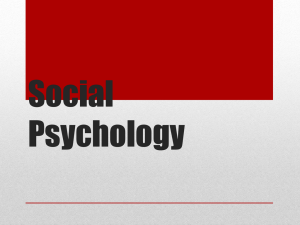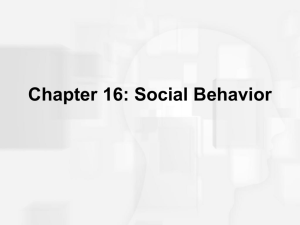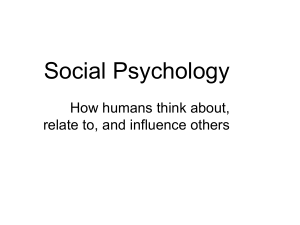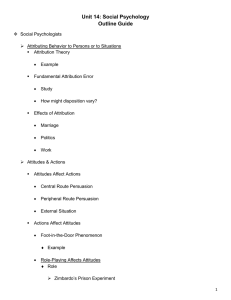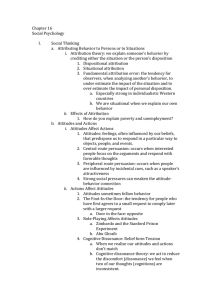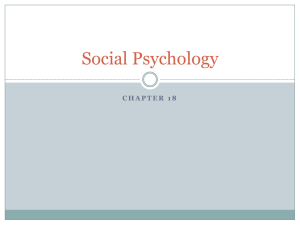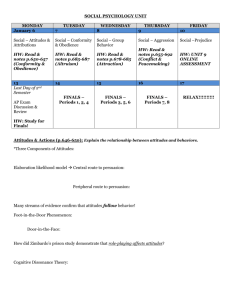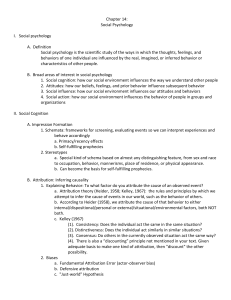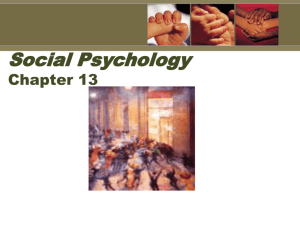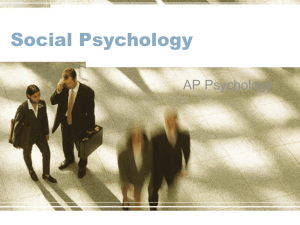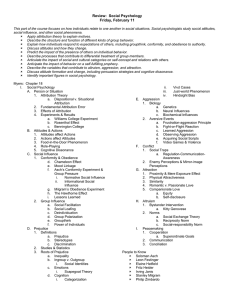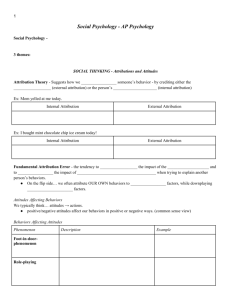Unit 13: Social Psychology Date Topic Assignment 4/9 Intro to Social
advertisement
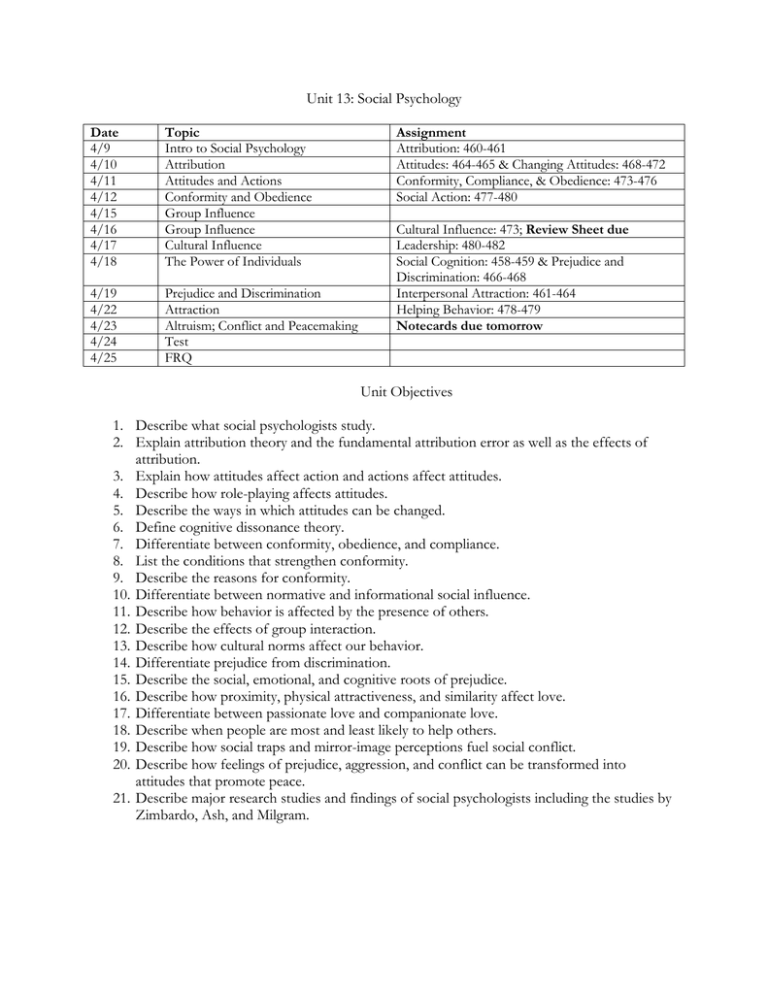
Unit 13: Social Psychology Date 4/9 4/10 4/11 4/12 4/15 4/16 4/17 4/18 Topic Intro to Social Psychology Attribution Attitudes and Actions Conformity and Obedience Group Influence Group Influence Cultural Influence The Power of Individuals 4/19 4/22 4/23 4/24 4/25 Prejudice and Discrimination Attraction Altruism; Conflict and Peacemaking Test FRQ Assignment Attribution: 460-461 Attitudes: 464-465 & Changing Attitudes: 468-472 Conformity, Compliance, & Obedience: 473-476 Social Action: 477-480 Cultural Influence: 473; Review Sheet due Leadership: 480-482 Social Cognition: 458-459 & Prejudice and Discrimination: 466-468 Interpersonal Attraction: 461-464 Helping Behavior: 478-479 Notecards due tomorrow Unit Objectives 1. Describe what social psychologists study. 2. Explain attribution theory and the fundamental attribution error as well as the effects of attribution. 3. Explain how attitudes affect action and actions affect attitudes. 4. Describe how role-playing affects attitudes. 5. Describe the ways in which attitudes can be changed. 6. Define cognitive dissonance theory. 7. Differentiate between conformity, obedience, and compliance. 8. List the conditions that strengthen conformity. 9. Describe the reasons for conformity. 10. Differentiate between normative and informational social influence. 11. Describe how behavior is affected by the presence of others. 12. Describe the effects of group interaction. 13. Describe how cultural norms affect our behavior. 14. Differentiate prejudice from discrimination. 15. Describe the social, emotional, and cognitive roots of prejudice. 16. Describe how proximity, physical attractiveness, and similarity affect love. 17. Differentiate between passionate love and companionate love. 18. Describe when people are most and least likely to help others. 19. Describe how social traps and mirror-image perceptions fuel social conflict. 20. Describe how feelings of prejudice, aggression, and conflict can be transformed into attitudes that promote peace. 21. Describe major research studies and findings of social psychologists including the studies by Zimbardo, Ash, and Milgram. Vocab: 1. 2. 3. 4. 5. 6. 7. 8. 9. 10. 11. 12. 13. 14. 15. 16. 17. 18. 19. 20. 21. 22. 23. 24. 25. 26. 27. Names: Fundamental Attribution Error Attitudes Foot-in-the-Door Phenomenon Role Cognitive Dissonance Theory Central v. Peripheral Route to Persuasion Conformity v Obedience v Compliance Normative v Informational Social Influence Social Facilitation Social Loafing Group Polarization Groupthink Culture Norms Prejudice v Discrimination v. Stereotype Ingroup v. Outgroup Other-Race Effect Just-World Phenomenon Mere Exposure Effect Altruism Bystander Effect Social Exchange Theory Reciprocity Norm Social-Responsibility Norm Social Traps Mirror-image perceptions Superordinate goals 1. 2. 3. 4. 5. 6. 7. Designated Review Unit - Unit 7: Motivation and Emotion Solomon Asch John Darley and Bibb Latané Leon Festinger Irving Janis Stanley Milgram Muzafer Sherif Philip Zimbardo
